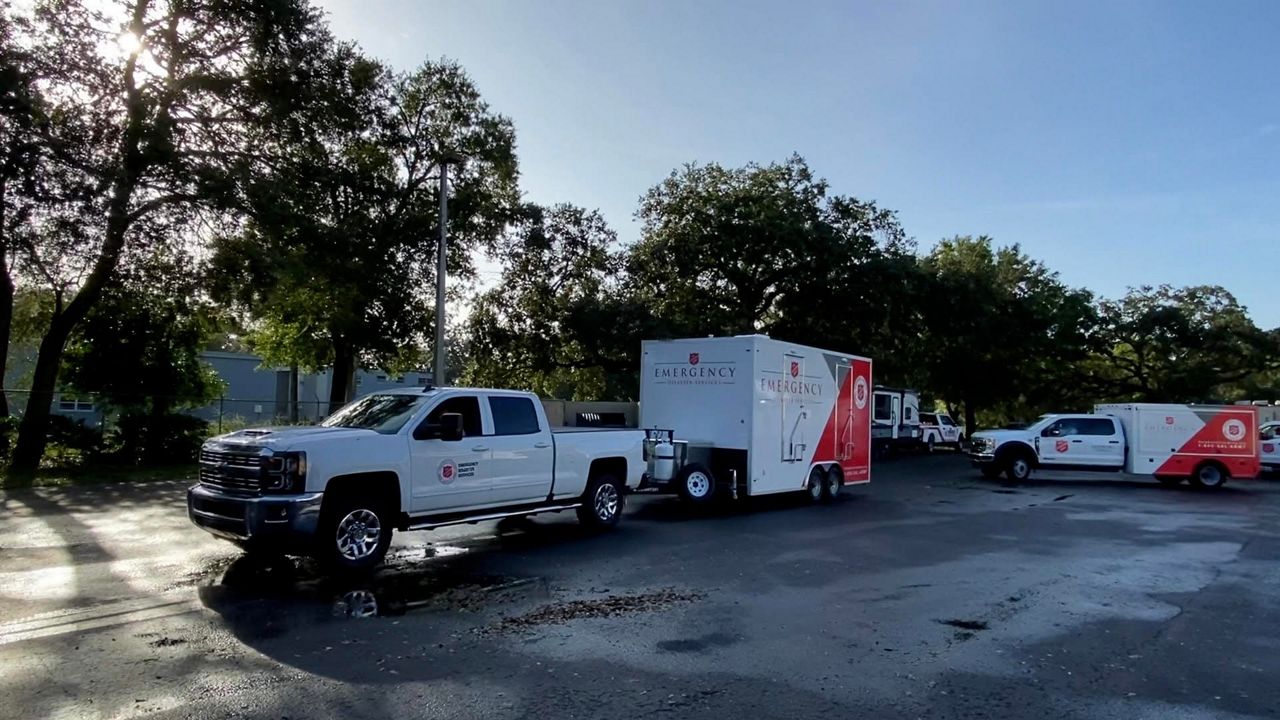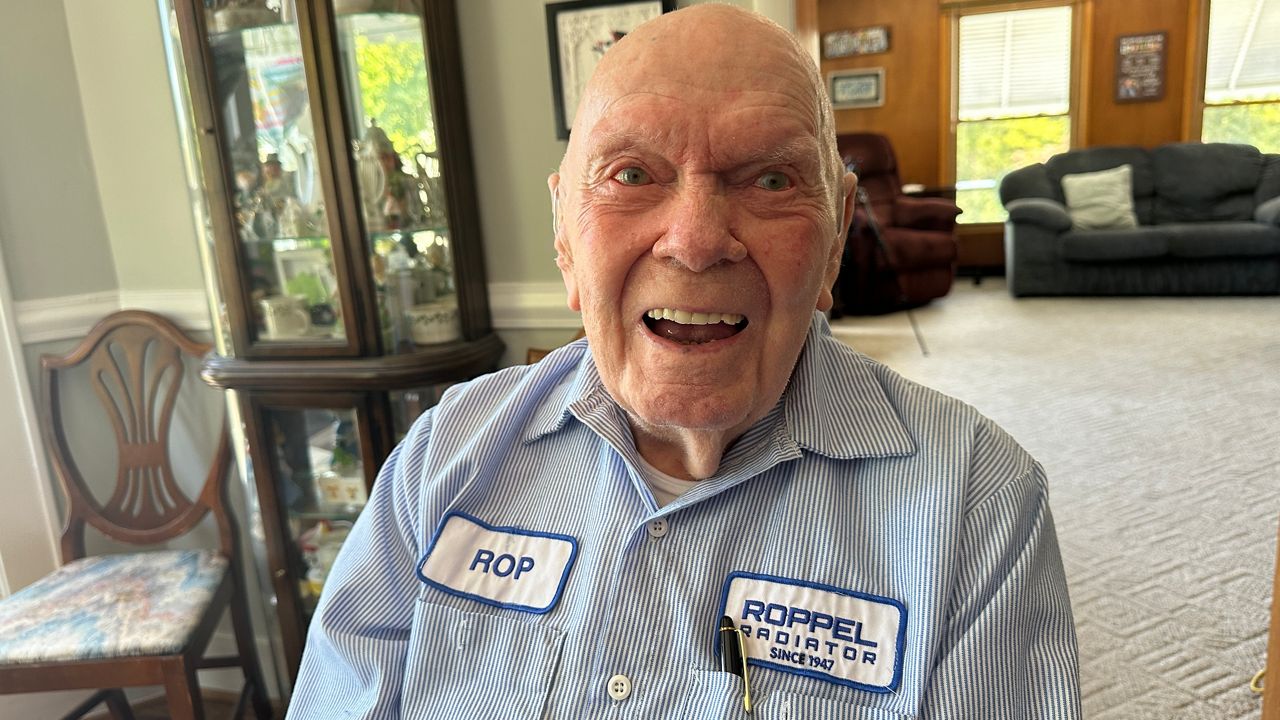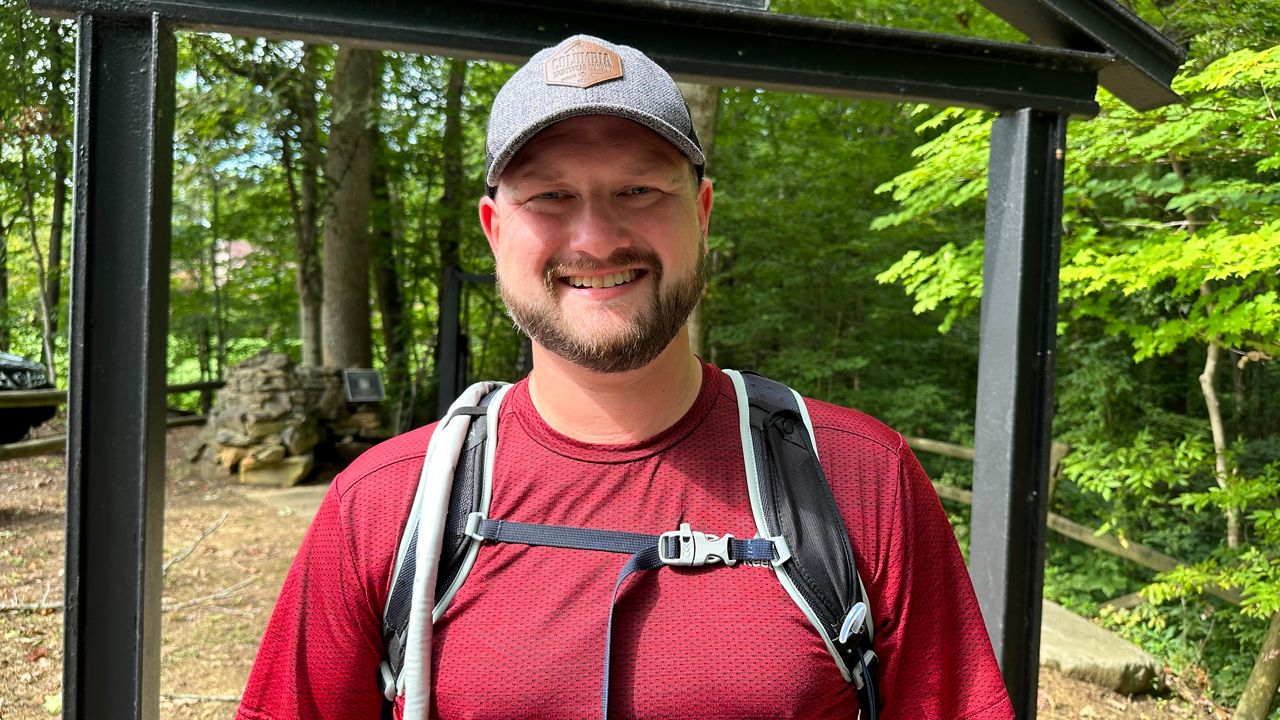CORRECTION: A previous version of this story wasn't clear where Hayden Kissen was taken for medical care after he began having symptoms. He began feeling sick after a trip to St. Louis, but he was taken to see doctors in Evansville, Indiana. The error has been corrected. (May 3, 2024)
LOUISVILLE, Ky. — Many parents may find navigating their child’s health care journey difficult or daunting. One family’s push for answers helped doctors diagnose a rare blood disease in their son.
Ten-year-old Hayden Kissen has made a new friend. The animal lover has gotten to know Gavin the therapy dog well during his monthlong stay at Norton Children’s Hospital.
“He just comes in here a lot and he’ll lay with me and he’ll hug in me and stuff and that makes me feel happy again,” Hayden says.
After a trip to St. Louis, Missouri in April, the avid sports fan started throwing up, experiencing stomach pain, and he noticed red dots on his skin. His parents took him to doctors in Evansville, Indiana but were told repeatedly that over-the-counter pain medication and rest at home would resolve the pain and sickness.
Kissen’s illness continued, and he was later diagnosed with of Henoch-Schönlein purpura (HSP), a rare disease causing small blood vessels to swell. Norton Children’s Hospital rheumatology physician Dr. Alexis Begezda says anywhere from 3 to 27 per 100,000 kids are diagnosed with HSP every year. HSP can often be treated at home, but Hayden was experiencing complications related to the disease.
“Hayden developed a complication of HSP called intussusception, which is actually the most common abdominal complication that we see with HSP. And with intussusception, the intestine in will fold in on itself kind of like a telescope,” Begezsa explained.
In the past two months, the Evansville fifth grader has undergone three surgeries and has been staying at Norton Children’s Hospital.
“So thankful that we kept pushing and didn’t just take him home. Because we have been told that it could have turned out a lot differently had we not kept pushing for someone to take a closer look at him,” Angela Kissen, Hayden’s mom, said.
His parents believe spreading awareness about HSP and medical advocacy could prevent other families from going through a similar experience.
“How do you treat something that most people don’t ever you don’t ever see, you don’t ever come in contact with, you don’t ever have to deal with? And we’ve had several nurses that have said, honestly, it’s something that you learn about in school. You take a test on it, then you never read or hear about it again,” Joshua Kissen, Hayden’s dad, said.
Begezda says common symptoms of HSP include rash looking like raised bruises, joint pain or swelling or abdominal pain. She encourages parents to take their child to a pediatrician if they suspect their child may have HSP.
Hayden Kissen went back to Evansville on Friday, May 31. He finally got to see his new puppy.










